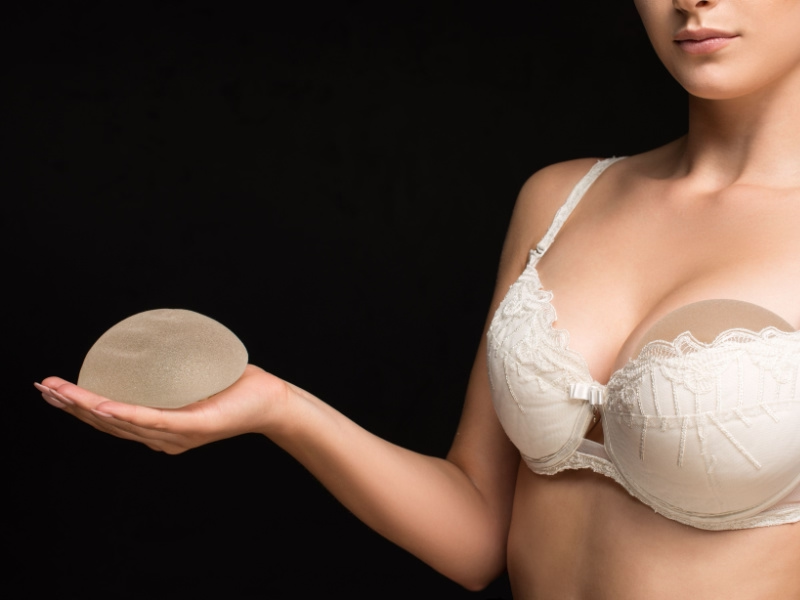Breast implants are a popular solution for individuals seeking to enhance their body contour. However, like most artificial devices, they do not last forever. The longevity of breast implants is a common concern among many patients.
This article aims to provide detailed information on breast implant longevity, signs of needed replacement, the science behind wear and tear, and the procedure for implant exchange.

Understanding Breast Implant Longevity
Breast implant longevity refers to the lifespan of the implant before it needs replacement. This is influenced by a range of factors, including the type of implant used and individual lifestyle
Varieties of Breast Implants and Their Longevity
The types of breast implants play a significant role in determining their longevity. The primary categories of implants include saline and silicone options.
Saline breast implants are filled with a sterile saltwater solution, providing a uniform shape, firmness, and feel.
Silicone breast implants contain silicone gel, providing a texture akin to natural breast tissue. The average lifespan of these implants is between 10 to 20 years, although this can vary based on individual circumstances and the quality of post-operative care.
Factors Affecting Implant Longevity
Implant longevity can be enhanced by advanced surgical techniques that minimize scar tissue and ensure correct placement.
The lifespan of implants can also be influenced by the body’s response, particularly the interaction between natural breast tissue and the implant. Implant replacement surgery may be necessary due to capsular contracture, a hardening of scar tissue around the implant.
Weight fluctuations can also impact implant lifespan, altering breast shape, size, and appearance.
Regular monitoring and proper care, including routine check-ups, mammogram guidelines adherence, and self-examinations, are essential to maximize implant lifespan.
Signs Your Breast Implants Need an Exchange
It’s important to know when your implants might need an exchange. This can be determined by both physical and emotional changes.
Physical Changes to Look For
Physical changes indicating a need for implant exchange include hardening, ruptures, rippling, palpability, and positional shifts.
Emotional Considerations
Emotional factors play a key role in deciding on an implant exchange. If you’re dissatisfied with breast size or shape, experience discomfort or anxiety arising from your implants, considering an exchange may be necessary.
The Science Behind Breast Implant Wear and Tear
Breast implants, like any other artificial devices, undergo wear and tear over time. This is influenced by material degradation and lifestyle choices.
Material Degradation Over Time
Breast implant materials naturally degrade over time, like all artificial devices. The degradation rate is influenced by the body’s reaction to the implant, implant quality, and the surgical techniques employed during the procedure.
Impact of Lifestyle Choices
Lifestyle choices can also impact the wear and tear of implants. Factors such as weight gain or weight loss, heavy lifting, and even certain sports can affect the longevity of breast implants.
Breast Implant Exchange Procedure
When it’s time to replace your implants, the breast implant exchange procedure is typically the next step.
What Does the Process Involve?
The procedure involves replacing current implants with new ones, possibly alongside a breast lift. The surgical techniques applied hinge on the chosen implant type and the patient’s body structure.
Recovery Time and Expectations
Recovery times differ per individual, but normal activities usually resume within weeks. Following postoperative guidelines and caring for the surgical site ensures a smooth recovery.
Risks of Ignoring Implant Exchange
Ignoring the need for an implant exchange can lead to a range of potential health risks and aesthetic consequences. It’s essential to understand these risks and seek professional medical advice when necessary
Potential Health Risks
Neglecting a necessary implant exchange can result in health risks. This includes complications like capsular contracture, hardening around the implant, and implant rupture, causing silicone or saline leakage into the body.
Aesthetic Consequences
Ignoring the need for an implant exchange poses health risks and aesthetic consequences like changes in breast appearance, including rippling, palpability, or altered position. Overlooking these signs and delaying exchange can result in unsatisfactory outcomes and possible complications.
Financial Aspects of Breast Implant Exchange
Costs Involved
The costs involved in an implant exchange can vary based on several factors.
These can include the surgeon’s fee, anesthesia costs, and facility fees.
In addition, the type of implant chosen and whether additional procedures, such as a breast lift, are performed can also influence the overall cost.
Why Choose Dr. Vitenas for Your Breast Implant Exchange
When considering a breast implant exchange, choosing a skilled and experienced surgeon is critical. Dr. Paul Vitenas, with over 35 years of experience in cosmetic surgery, is a renowned choice for this procedure.
Expertise and Experience
Dr. Vitenas’ expertise and experience make him an excellent choice for your breast implant exchange. He has successfully performed numerous breast augmentation implant procedures and exchanges, utilizing his extensive knowledge of the latest surgical techniques. His commitment to patient care and satisfaction is evident in his personalized approach to each procedure.
Patient Testimonials
Patient testimonials, including before and after photos, attest to Dr. Vitenas’ skill and dedication. His patients consistently praise his professionalism, attention to detail, and the outstanding results they achieve.
Preparing for Your Consultation
Preparing for your consultation is an important step. Knowing what questions to ask, as well as what to bring, can help ensure that you get the most out of your consultation.
Questions to Ask
During your consultation, it’s important to ask questions to fully understand the procedure. These can include questions about your plastic surgeon’s experience, the risks and benefits of the procedure, recovery time, and expected results.
What to Bring
When preparing for your consultation with Dr, Vitenas, it’s helpful to bring any relevant medical records and a list of any medications you’re currently taking. You may also want to bring pictures to help communicate your desired results.
FAQs Relevant to Breast Implant Exchange
What is the recommended frequency for monitoring my breast implants?
Regular monitoring of implants is crucial for their longevity. An MRI scan is typically recommended three years post-implant surgery and biennially thereafter to detect silent ruptures, particularly in silicone gel implants.
What are the first signs of implant failure?
Implant failure signs differ based on the implant type. Saline implant ruptures are typically noticeable as the body absorbs the saline solution, causing deflation. Silicone implant ruptures are harder to detect, necessitating regular MRI scans. Symptoms may include alterations in breast shape or size, pain, swelling, or lumps.
Can I switch implant types during an exchange?
Yes, during an exchange, you can switch from saline to silicone implants, or vice versa. Consult your surgeon to discuss the advantages and disadvantages of each implant type.
Is breast implant illness a reason for implant exchange?
Breast implant illness refers to symptoms like fatigue, joint pain, and memory loss post-implantation. Despite not being an official medical condition, some women opt for implant removal or exchange to mitigate these symptoms.
How long does a typical breast implant exchange procedure take?
The duration of the procedure and recovery time can fluctuate based on factors like additional procedures. Typically, the surgery takes one to two hours, with most patients resuming normal activities within weeks.




